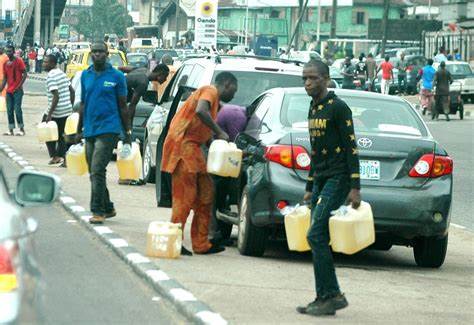Nigerian motorists may face higher fuel costs as the Federal Government and House of Representatives move to implement a 5% road user charge on petrol and diesel prices, a provision that has remained dormant since its enactment in 2007.
The development emerged during an investigative hearing conducted by the House of Representatives Ad-Hoc Committee on Monday in Abuja, where officials revealed the urgent need to activate the charge to address Nigeria’s massive road maintenance funding gap.
Minister of State for Works Mohammed Goroyo told the committee that Nigeria requires ₦800 billion annually for road maintenance, but budgetary allocations have consistently fallen short of this requirement. He emphasized the critical need for the Nigeria Midstream and Downstream Petroleum Regulatory Authority to begin collecting the 5% road user charge immediately.
“FERMA requires an estimated N880bn annually for optimal road conditions. Budgetary allocations have consistently fallen short—₦76.3bn in 2023 and ₦103.3bn in 2024, while ₦168.9bn was budgeted for 2025,” Goroyo stated. He described the consequences as “glaring—deteriorating road conditions, increased repair costs, and prolonged disruptions for commuters and businesses alike.”
The Minister stressed that “the diligent implementation and timely remittance of the five per cent user charge are paramount” to addressing the funding crisis affecting federal road infrastructure across the country.
Managing Director of the Federal Road Maintenance Agency Chukwuemeka Abbasi disclosed that NMDPRA never implemented the framework for deducting the road user charge from petroleum product prices, despite the legal provision existing for nearly two decades.
Abbasi explained that “the five per cent user charge, as stipulated in the FERMA Act, was intended to function as a sustainable funding source for road maintenance and rehabilitation. Nevertheless, for many years, FERMA has faced significant funding shortfalls, which have hindered its capacity to maintain our extensive road network effectively.”
House Speaker Tajudeen Abbas recalled that on March 19, the House had deliberated on a motion highlighting the non-implementation of the 5% user charge remittance on petroleum products designated for road maintenance under the FERMA Amendment Act of 2007.
Committee Chairman Francis Waive, who also chairs the House Committee on Rules and Business, clarified that the 5% road user charge is not a new initiative to increase petroleum prices or amend existing laws, as it has been part of legislation since 2007.
“The aim of the investigation was to rectify the irregularities arising from non-compliance with existing laws,” Waive stated, adding that “the House will ensure that every law enacted by the parliament is adhered to by both individuals and government agencies.”
The push for implementation comes at a time when Nigerians have recently experienced a decrease in petrol prices. Retail outlets of the Nigerian National Petroleum Company Limited, along with Dangote Refinery and its partners, have reduced their retail prices of premium motor spirit to �N875 and ₦895 per litre in Lagos and Abuja respectively.
The potential implementation of the 5% road user charge could reverse these recent price reductions and add to the cost burden on Nigerian consumers who rely heavily on petroleum products for transportation and power generation.
The charge, if implemented, would be automatically included in the pump price of petrol and diesel, with the collected funds directed toward the Federal Road Maintenance Agency for infrastructure maintenance and rehabilitation projects across the country’s extensive road network.



















